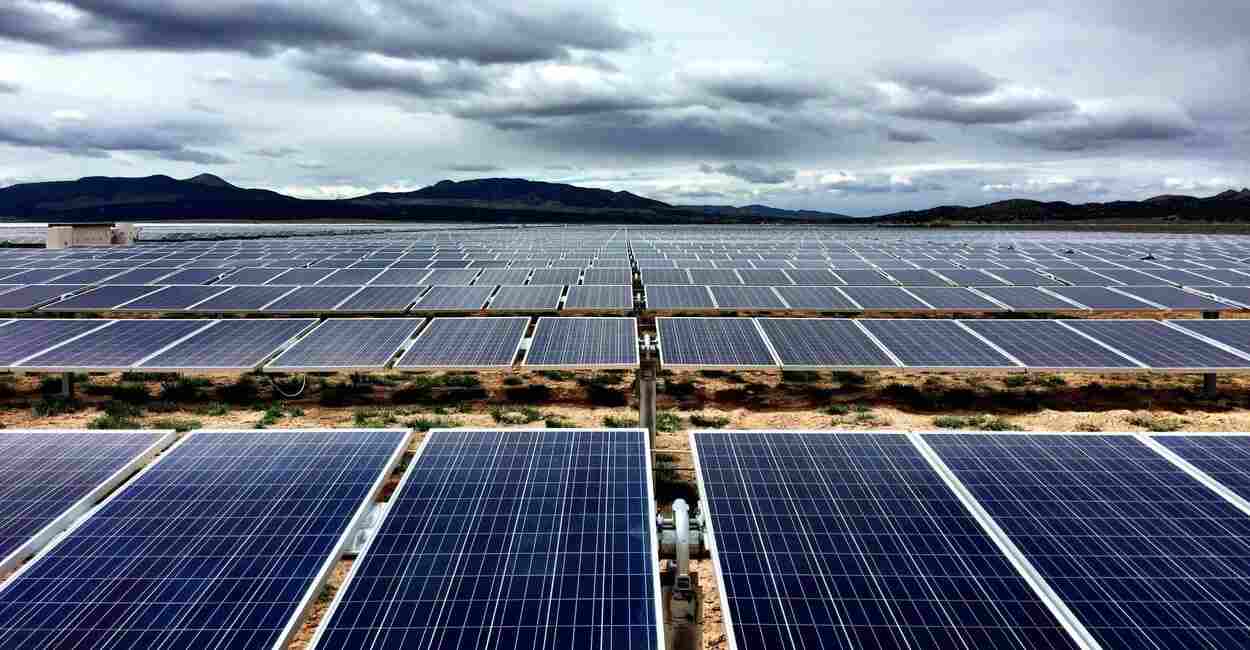The Role Of Solar Energy In The Transition To A Carbon-Free Economy

Solar energy plays a critical role in the transition to a carbon-free economy because it is a renewable and clean source of energy. Unlike fossil fuels, which emit carbon dioxide and other pollutants when burned, solar energy generates electricity through photovoltaic panels or concentrated solar power systems, without producing any emissions. Additionally, as the cost of solar technology continues to decrease, it is becoming increasingly cost-competitive with traditional forms of energy, making it a viable option for large-scale power generation. Furthermore, it can also be used in off-grid areas and for distributed generation, which can provide power to remote or underserved communities. Overall, the widespread adoption of solar energy can help to reduce greenhouse gas emissions and mitigate the effects of climate change.
Role Of Solar Energy In Sustainable Development
Solar energy plays a significant role in sustainable development by providing a clean and renewable source of power that can help to reduce reliance on fossil fuels and decrease greenhouse gas emissions. This can help to mitigate the effects of climate change, which is a key aspect of sustainable development. Additionally, solar energy can also contribute to sustainable development by providing access to electricity in remote or underserved areas, which can help to improve living standards and promote economic development.
In addition, the widespread use of solar energy can also create jobs in manufacturing, installation, and maintenance, which can help to promote economic growth and reduce poverty. Furthermore, the decentralized nature of solar energy can help to empower communities and individuals, by giving them greater control over their energy supply and reducing dependence on centralized energy systems.
Overall, solar energy is a key tool that can be used to promote sustainable development and meet the United Nations' Sustainable Development Goals, by providing clean and reliable energy, creating jobs, and reducing poverty and greenhouse gas emissions.
How Does Solar Energy Reduce Greenhouse Gasses
Solar energy reduces greenhouse gasses by providing a clean and renewable source of power that does not produce any emissions when generating electricity. This is in contrast to fossil fuels, such as coal, oil, and natural gas, which emit carbon dioxide and other pollutants when burned to generate electricity.
When solar panels convert sunlight into electricity, it does not produce any greenhouse gas emissions. This means that the more electricity that is generated from solar energy, the less electricity that needs to be generated from fossil fuels, and thus fewer emissions are produced. Furthermore, solar energy can also be used to replace fossil fuels in other applications, such as heating, cooling, and transportation, which can further reduce greenhouse gas emissions.
Moreover, the use of solar energy can also help to reduce emissions from other sectors of the economy, such as transportation, by providing a clean source of electricity for electric vehicles. Additionally, the use of solar energy can also help to reduce the need for other forms of low-carbon power generation, such as hydroelectric and nuclear power, which can also have a significant impact on reducing greenhouse gas emissions.
Overall, the widespread adoption of solar energy can play a major role in reducing greenhouse gas emissions and combating climate change, by providing a clean and renewable source of power that does not produce emissions when generating electricity.
The Impact Of Solar Energy On Reducing Greenhouse Gas Emissions
The impact of solar energy on reducing greenhouse gas emissions can be significant, particularly as the technology continues to advance and costs continue to decrease.
First, by replacing fossil fuels with solar energy in the generation of electricity, it can significantly reduce the amount of carbon dioxide and other pollutants that are emitted into the atmosphere. According to the International Energy Agency, solar energy has the potential to provide up to 11% of the world's electricity by 2050, which would reduce global greenhouse gas emissions by 6 gigatons per year.
Second, solar energy can also help to reduce emissions from other sectors of the economy, such as transportation, by providing a clean source of electricity for electric vehicles and other modes of transportation. This can help to reduce emissions from the transportation sector, which is a major contributor to global greenhouse gas emissions.
Third, the use of solar energy can also help to reduce the need for other forms of low-carbon power generation, such as hydroelectric and nuclear power, which can also have a significant impact on reducing greenhouse gas emissions.
Fourth, the use of solar energy in off-grid or remote areas can help to reduce the need to build and maintain transmission and distribution infrastructure, which can also help to reduce greenhouse gas emissions.
Overall, the impact of solar energy on reducing greenhouse gas emissions is significant, and with the continued advancement of technology and decreasing costs, it is expected to play an even more important role in the future in the fight against climate change.

The Potential Of Solar Energy In The Fight Against Climate Change
The potential of solar energy in the fight against climate change is significant, as it is a clean and renewable source of power that can help to reduce greenhouse gas emissions and mitigate the effects of climate change.
One of the most significant potentials of solar energy is its ability to generate large-scale power generation, which can replace fossil fuels as a primary source of electricity. By replacing fossil fuels with solar energy, it can significantly reduce the amount of carbon dioxide and other pollutants that are emitted into the atmosphere. According to the International Energy Agency, solar energy has the potential to provide up to 11% of the world's electricity by 2050, which would reduce global greenhouse gas emissions by 6 gigatons per year.
Solar energy can also be used in off-grid or remote areas, which can help to reduce the need to build and maintain transmission and distribution infrastructure, which can also help to reduce greenhouse gas emissions. Also, it can be used to replace fossil fuels in other applications, such as heating, cooling, and transportation, which can further reduce greenhouse gas emissions.
Furthermore, the use of solar energy can also help to reduce emissions from other sectors of the economy, such as transportation, by providing a clean source of electricity for electric vehicles and other modes of transportation. This can help to reduce emissions from the transportation sector, which is a major contributor to global greenhouse gas emissions.
Overall, the potential of solar energy in the fight against climate change is significant, and with the continued advancement of the technology and decreasing costs, it is expected to play an increasingly important role in the future in the fight against climate change.
The Role Of Solar Energy In The Sustainable Energy Mix
Solar energy plays an important role in a sustainable energy mix, which is a combination of different energy sources that can meet the energy needs of society while minimizing environmental impacts and promoting energy security.
Solar energy is a clean and renewable source of power that does not produce any emissions when generating electricity. This makes it an ideal source of power for reducing greenhouse gas emissions and mitigating the effects of climate change, which are key aspects of sustainable energy.
Solar energy can also be used in combination with other forms of renewable energy, such as wind and hydroelectric power, to create a diverse and resilient energy mix. This can help to ensure that power generation remains stable and reliable even when individual sources of power experience variability.
In addition, solar energy can also be used in combination with energy storage systems, such as batteries, to store excess power for later use. This can help to ensure that power is available even when the sun is not shining, which can help to make solar energy a more reliable source of power.
Furthermore, solar energy can also be used in off-grid or remote areas, which can help to reduce the need to build and maintain transmission and distribution infrastructure, which can also help to reduce greenhouse gas emissions.
Overall, solar energy plays an important role in a sustainable energy mix, by providing a clean and renewable source of power that can help to reduce greenhouse gas emissions and promote energy security. Its combination with other forms of renewable energy and energy storage systems can help to improve the reliability and stability of the energy mix.
The Role Of Solar Energy In Achieving Carbon-Free Goals
Solar energy plays an important role in achieving carbon-free goals, which are aimed at reducing greenhouse gas emissions and transitioning to a low-carbon or carbon-free economy.
First, solar energy is a clean and renewable source of power that does not produce any emissions when generating electricity. By replacing fossil fuels with solar energy in the generation of electricity, it can significantly reduce the amount of carbon dioxide and other pollutants that are emitted into the atmosphere. This is essential for achieving carbon-free goals as it helps to reduce greenhouse gas emissions from the power sector which is one of the major contributors to global greenhouse gas emissions.
Second, solar energy can also help to reduce emissions from other sectors of the economy, such as transportation, by providing a clean source of electricity for electric vehicles and other modes of transportation. This is important because the transportation sector is also a major contributor to global greenhouse gas emissions.
Third, the use of solar energy can also help to reduce the need for other forms of low-carbon power generation, such as hydroelectric and nuclear power, which can also have a significant impact on reducing greenhouse gas emissions.
Fourth, the use of solar energy in off-grid or remote areas can help to reduce the need to build and maintain transmission and distribution infrastructure, which can also help to reduce greenhouse gas emissions.
Overall, solar energy plays an important role in achieving carbon-free goals, as it provides a clean and renewable source of power that can help to reduce greenhouse gas emissions in the power sector and other sectors of the economy. It can help to reduce the need for other forms of low-carbon power generation, and its use in off-grid or remote areas can help to reduce the need to build and maintain transmission and distribution infrastructure.
Summary
In summary, the role of solar energy in the transition to a carbon-free economy is significant. Solar energy is a clean and renewable source of power that can help to reduce greenhouse gas emissions and mitigate the effects of climate change. It can generate large-scale power to replace fossil fuels as a primary source of electricity, which can significantly reduce carbon dioxide and other pollutants that are emitted into the atmosphere. It can be used in off-grid or remote areas, reducing the need to build and maintain transmission and distribution infrastructure, which can also help to reduce greenhouse gas emissions. Furthermore, solar energy can also help to reduce emissions from other sectors of the economy, such as transportation, by providing a clean source of electricity for electric vehicles and other modes of transportation. Overall, solar energy plays a crucial role in the transition to a carbon-free economy as it is a clean and renewable source of power that can help to reduce greenhouse gas emissions and promote energy security.
To gain a comprehensive understanding of the role of solar energy in a carbon-free economy, click for more to discover how it can help you save on electricity bills and go green.

